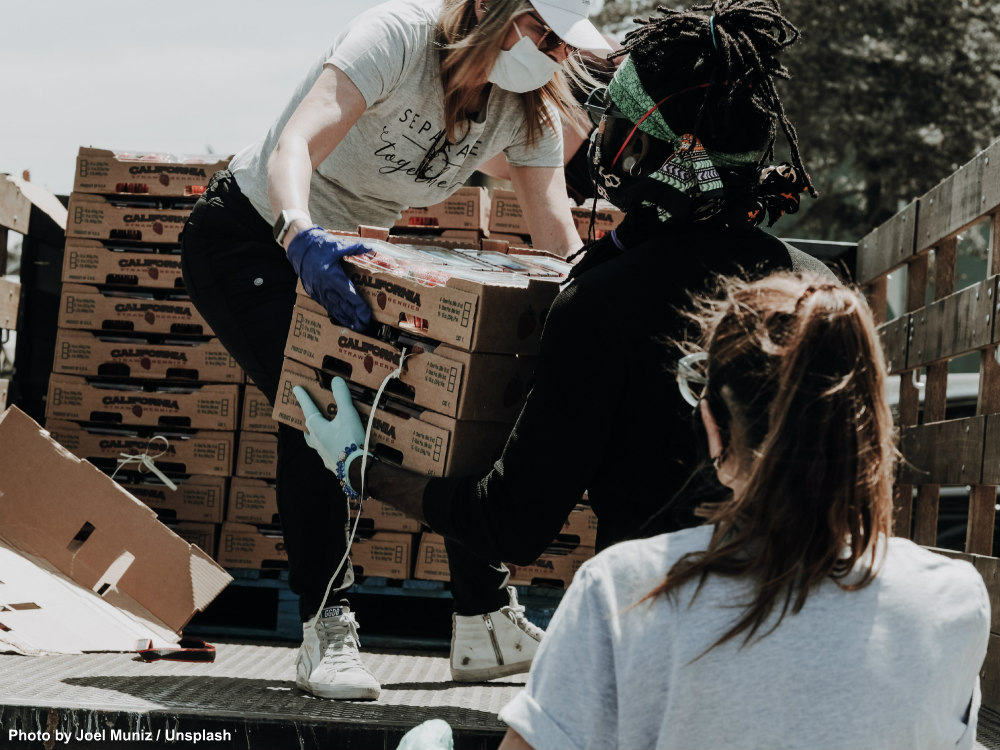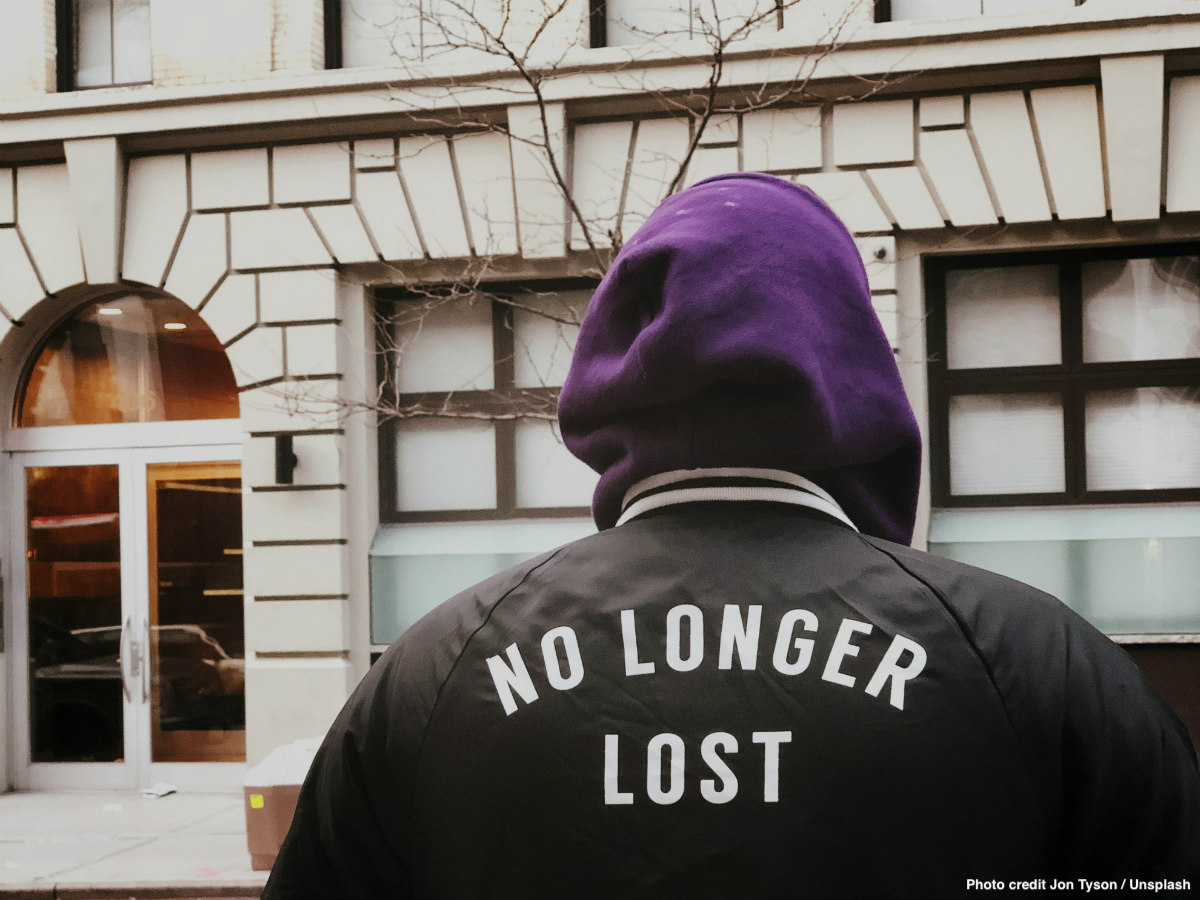Lower prices attract more people to a store. Higher sales lead to greater buying power. Greater buying power brings even lower prices. To these sound principles of microeconomics, food cooperatives add a direct relationship to the food producer and bring part of the labour cost back to the customer. This enables people, with their shopping basket and free time, to take control over what they eat; good, healthy, and affordable food.
For this reason, food cooperatives are a good example of concrete ways of how cities can translate global goals of sustainability and protection of the environment into local action. In this case by promoting responsible consumption and supporting people’s health.
Economic viability is important while people are put at the center of their business. Food cooperatives are grocery stores where the customer is the owner. Besides a symbolic economic contribution to become a member, members have to commit a certain number of hours of their time to supermarket work. The more members joining means lower labour costs, leading to the food cooperatives charging even lower prices.
This is not a conjecture in mathematics. One of the most successful supermarkets in New York City is Park Slope Food Coop. It has already zero customers and 17,000 workers. In Paris the food cooperative La Louve has more than 9,000 members. The secret of their success is simple: to shop there, all members—rich and poor, old and young, from every culture and race in the city—have to put in three hours a month of work. Park Slope has been running since 1973 and La Louve since 2017.
But what are three hours a month of an urban dweller’s life? Time is very valuable in big cities with long commuting journeys and long distances.
Urban activism in responsible consumption in Madrid
‘In Madrid, for instance, people go about life at such a high-speed that there is little time left for this type of in-kind work’, explains Jose Antonio Villarreal. He, together with Tomás Fuentes, are the co-founders of the first big food cooperative in Madrid called LA OSA, following the model of Park Slope and La Louve.
In September 2014, well before they came across the idea of food cooperatives, they started creating a managed consumption group to find local affordable good food and train in responsible consumption in the neighbourhood of Malasaña. Two years later they opened an organic store accessible to all the residents of the neighbourhood and became an important physical point of information and dissemination of their project.
In 2018 they moved to a bigger premises on the same street and decided to embrace a wider range of products from a natural source. This journey took them to where they are today. In 2019 they obtained the permit to rent an 800m2 premises owned by the city administration in the district of Tetuán.
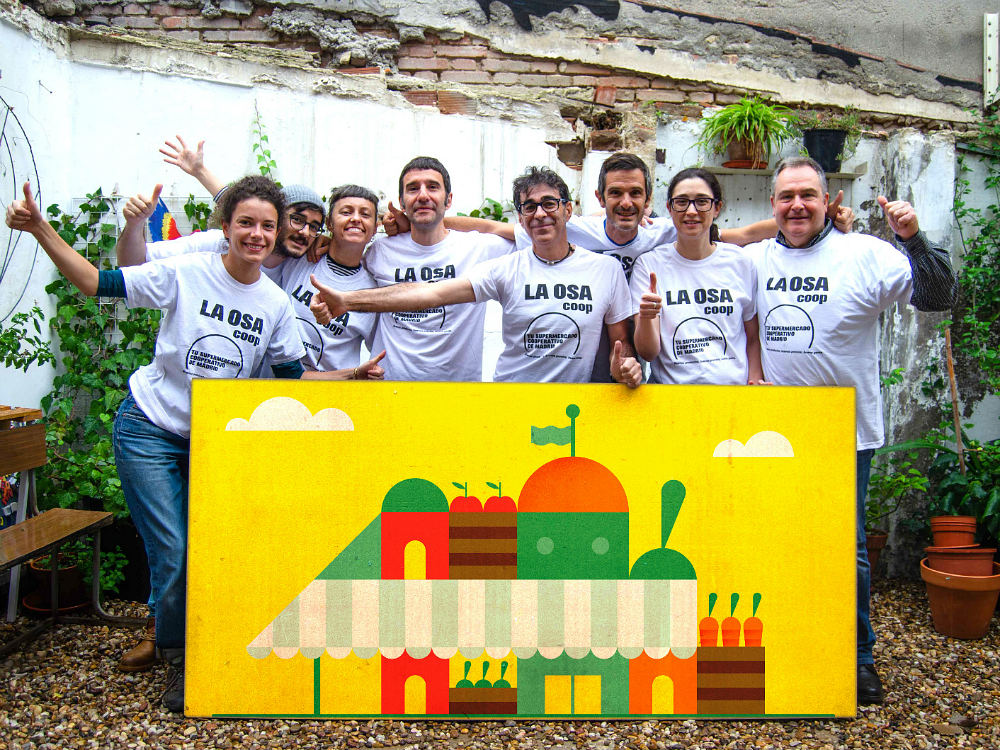
Their plans are to open the doors of LA OSA this coming November. There are already more than 900 cooperative members and all participate in its financing, operation and governance. Decisions on the management of the cooperative are collective and each cooperative member has one vote. All in exchange for a single payment of € 100 to the share capital, corresponding to 4 shares of € 25 each. This capital is reimbursable to anyone who wishes to withdraw from the cooperative later on.
In addition, each member is committed to participate three hours every four weeks in carrying out the tasks of the supermarket. These shifts of participation are flexible and with different schedules to suit the personal needs of each cooperative member.
Food cooperatives are an alternative to conventional supermarkets in neighbourhoods for health-conscious citizens who want to have access to high-quality affordable good food. There are already people in Madrid who want an alternative to change their way of consuming, explains Villareal.
According to a study presented by the ClosinGap platform, women prefer to make a sustainable purchase with the environment in a local store. 61% of women are aware of their responsibility to the environment, while in men it is not even half. This greater social awareness translates into a determined commitment to make purchases in local and proximity stores.
Food cooperatives want to transform consumption in cities
The challenge is to reach a big majority of people and revolutionize consumption in the neighbourhood, in the city. LA OSA aims at being a space for exchange and training where the community can raise awareness about eating habits and their environmental impact.
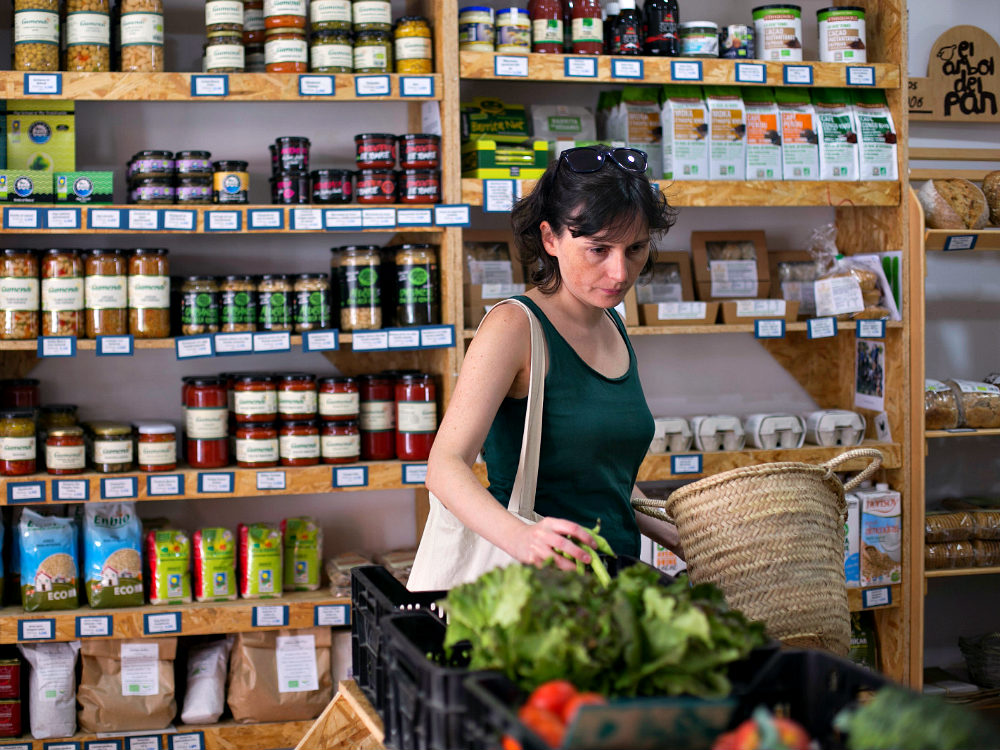
‘We choose our suppliers carefully to meet our quality requirements. However, we are not entirely detached from conventional products in certain categories because LA OSA is committed to responding to the needs of each and everyone. The presence of better quality products at a similar price closed to conventional ones will encourage customers to prioritize the ones with ecological labels’, acknowledges Villareal.
Transparency in the pricing policy is another pillar of food cooperatives.
At LA OSA we have the same margin per product category. We envision, in the second year of operations, to reach a fixed single margin for all products. This is a powerful illustrative pricing policy for the customer who can tell what things cost and realize pricing differences with other products.
In addition, a good variety of products is key. Tom Boothe, the director of the film “Food Coop” and founder of the cooperative supermarket La Louve in Paris once stated in an interview that it is already proven that if people don’t find everything they need in one supermarket, eventually they will not come back. So part of food cooperatives’ success is to have a minimum reasonable size to be able to have a good affordable offer for customers. Small food cooperatives struggle to succeed.
Food security and food sovereignty
Due to the pandemic, members at the Park Slope food cooperative have voted in favour of temporarily increasing the Coop’s storewide mark-up from 21% to 25% to improve their financial solvency. Cooperatives are able to adapt when they can’t operate their normal member labour program to adhere to physical distancing guidelines with reduced capacity.
Food sovereignty has always been important but the current global crises of COVID-19 and climate change amplify its urgency. Madrid has been badly hit by the pandemic and anxiety about food security and affordability has increased because people feel disconnected to food corridors in their cities, which rely on globalised food chains. Food cooperatives offer people control over the supply chain by working directly with suppliers, strengthening the local rural and urban connection and creating sustainable food systems.
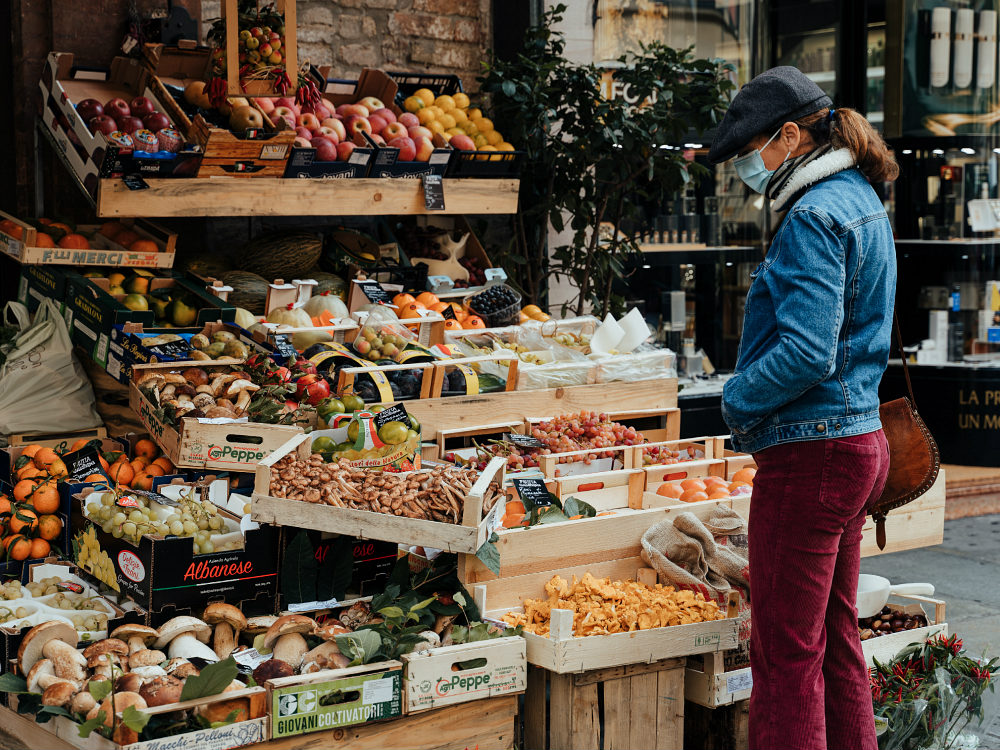
In fact, in places like Lebanon struggling with a food crisis, food cooperatives working with local farmers could be an alternative to globally industrialised agriculture to build an agriculture culture in the country and curb hunger.
In our society there is such an incredible level of toxicity in the amount of news and information we get that we struggle to acknowledge that we can cooperate to transform, claims Villareal.
Food cooperatives are also places of social cohesion and inclusivity where all kinds of people intermingle. They unite communities based on the values of inclusion, equity, self-responsibility, democracy and solidarity. Positive impact on the environment and climate change are immediate consequences when people and their common values are put ahead of profit.
‘In addition to pollution we eat products that are terribly contaminated. A food cooperative is a social business first-hand, we are in the real economy, solving problems at the front of food affordability and well-being in cities. Now is the right moment in time to promote an economy where social and economic purposes are turned around. Alternatives already exist, they are real, they solve everyday problems and people get life changing benefits’, says Villareal.
Food coops, a success story when the city slows down
In the aftermath of the pandemic, there is a general consensus that health and people should be put ahead of the economy. There is also a flourishing social and environment conscious mindset that believes that responsible new forms of businesses can improve society and be the main drivers of urban progress.
That represents a big opportunity for health-conscious stores to evolve in cities if they have the trust of the people. Thanks to the successful number of members joining, in Paris it took only two years to achieve what took 30 years for Park Slope in New York.
As cities slow down and people have more time on their hands, they are trusting new ways of shopping based on values of social and environmental responsibility. Yet time is still important in people’s decisions. Cities and workplaces have to reinvent themselves to crack that variable of time to change urban habits to contribute to people’s and environment’s health. Another way of grocery shopping is possible. Because, overall, we are what we eat.
